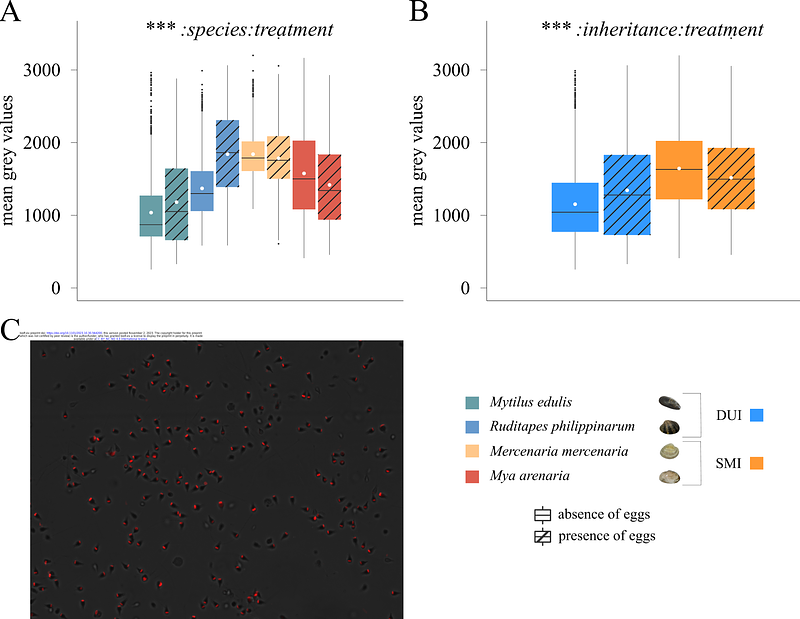Investigating the role of mitochondrial membrane potential in paternal inheritance of mitochondria

Investigating the role of mitochondrial membrane potential in paternal inheritance of mitochondria
Pouliot-Drouin, A.; Niaison, T.; Breton, S.; Bettinazzi, S.
AbstractThe process of oxidative phosphorylation (OXPHOS) in mitochondria depends on an electrochemical gradient known as the mitochondrial membrane potential ({Delta}{psi}m). Reflecting high functionality, elevated {Delta}{psi}m usually depicts healthy mitochondria and contribute to organelle selection. This study investigates whether mitochondrial properties linked with bioenergetics, such as {Delta}{psi}m, may play a role in paternal inheritance of mitochondria. More specifically, how sperm {Delta}{psi}m responds to egg chemoattractants in bivalves characterized by distinct mitochondrial inheritance patterns: strict maternal inheritance (SMI) and doubly uniparental inheritance (DUI), the latter displaying sex-specific transmission of paternal mitochondrial DNA (mtDNA). Sperm {Delta}{psi}m was examined in four bivalve species: Mytilus edulis and Ruditapes philippinarum (DUI), plus Mercenaria mercenaria and Mya arenaria (SMI). In absence of oocytes, sperm {Delta}{psi}m did not vary between the two groups. However, we revealed an increase in {Delta}{psi}m following egg detection only in sperm bearing paternally-derived mitochondria (DUI). This suggests, along with bioenergetic changes, that {Delta}{psi}m modulation might be a specific property of DUI paternal mitochondria, possibly implicated in their unique ability to be sex-specifically transmitted.